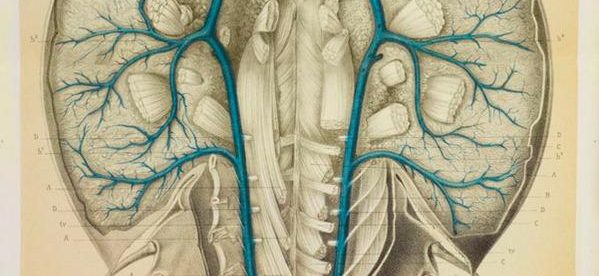The Weekender, February 22, 2019

1) “Baby Blue Blood Drive” (Radiolab, 58 minutes, August 2018). This is a podcast episode about the magic-ish properties of horseshoe crab blood; I chose it because I had the occasion to see some horseshoe crabs this week, and this came up both times. (I’ve also written about the topic before if you want a shorter version.)
Horseshoe crabs are not much to look at. But beneath their unassuming catcher’s-mitt shell, they harbor a half-billion-year-old secret: a superpower that helped them outlive the dinosaurs and survive all the Earth’s mass extinctions. And what is that secret superpower? Their blood. Their baby blue blood. And it’s so miraculous that for decades, it hasn’t just been saving their butts, it’s been saving ours too.
But that all might be about to change.
Follow us as we follow these ancient critters – from a raunchy beach orgy to a marine blood drive to the most secluded waterslide – and learn a thing or two from them about how much we depend on nature and how much it depends on us.
2) “Financial Windfalls: 15 Stories of the Money That Changed Everything” (Topic, 47 minutes, date unclear). The title makes it sound like a click-bait slideshow article. It’s not, and has a lot of good stories with a few surprises along the way. The subhead is a good summary of what to expect (except for the unexpected parts, of course!): “We asked over a dozen people how gifts, insurance payouts, the MacArthur Genius Award, book deals—ranging from $8,000 to over $1 million—were spent.”
3) “A Water Crisis Is Growing In A Place You’d Least Expect It” (NPR, 10 minutes, February 2019). Right before finding this piece, I stumbled across another article about how Iraq is suffering through all sorts of water shortages due to decades of mismanagement by the Hussein regime. So I fully expected “Iraq” to be the place NPR was reporting on, despite the fact that the headline would have been wrong for me (and really for anyone). But it’s not wrong.
4) The Now I Know Week in Review:
Monday: President’s Day! No Now I Know, sorry. But here’s something fun for this space: A quiz, from Mental Floss, asking “Can You Name the President Just by Looking at Their Facial Hair?” (Second-guessing really hurt me — I got 8 of 11 but should have been at 10/11.)
Tuesday: The Toxic Lady: A woman walks into the ER and… nope, this isn’t a joke. It’s the opposite.
Wednesday: Fruit Loopholes: How not to write a law.
Thursday: How to Recycle Thousands of Tons of Military-Grade Metal: Step 1, build an aircraft carrier. Step 2, have a really hard time figuring out to do with it. Step 3, blow it up.
WeekenderAdUnits
5) “They Really Don’t Make Music Like They Used To ” (New York Times, February 2019). This would have been a better share before the Grammys but, oh well. Anyway, the subhead: “If the Eagles or Marvin Gaye fan in your life is complaining about this year’s Grammy songs, this might be why. ” (Hint: science!)
It’s Grammy time, and as always, watching the awards ceremony on Sunday will include a subtext of cross-generational carping: “They don’t make music the way they used to,” the boomers and Gen Xers will mutter. And they’ll be right. Music today, at least most of it, is fundamentally different from what it was in the days of yore — the 1970s and 80s.
[It’s “too loud.”]
By “too loud,” I don’t mean you can’t crank the Eagles, if that’s your thing. I’m talking about loudness as a measure of sound within a particular recording. Our ears perceive loudness in an environment by reflexively noting the dynamic range — the difference between the softest and loudest sounds (in this case, the environment is the recording itself, not the room you are playing it in). A blaring television commercial may make us turn down the volume of our sets, but its sonic peaks are no higher than the regular programming preceding it. The commercial just hits those peaks more often. A radio station playing classical music may be broadcasting a signal with the same maximum strength as one playing hip-hop, but the classical station broadcast will hit that peak perhaps once every few minutes, while the hip-hop station’s signal may peak several times per second.
[ . . . ]
In the predigital era, compression required a mastering engineer whose job is to create the physical master for the manufacturing process, to employ restraint and finesse. With digital audio, a few mouse clicks can compress the dynamic range with brute force. The result is music that sounds more aurally aggressive — like the television commercial.
6) “The Legend of Buster Smith” (Chicago Reader, 20 minutes, February 1993). You’ve never heard of him. That’s OK — he’s really not that legendary. Wikipedia describes him as a champion checkers player who “began in his native Chicago and was citywide champion by 17. He remained Chicago’s best player until his death. He rarely played for money so made his living working for the post office.” The linked-to article is a wonderful look into his life.
Have a great weekend!
